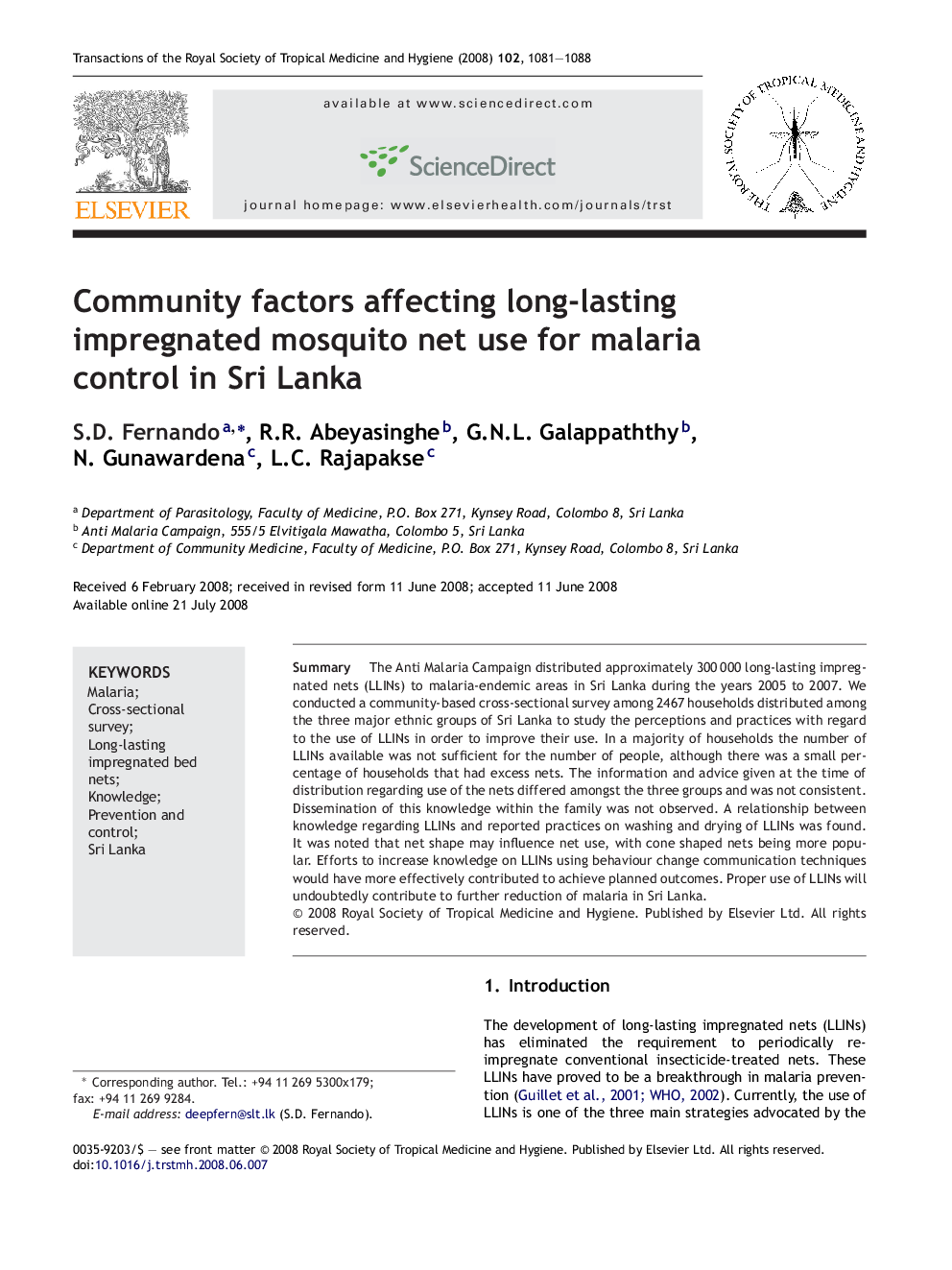| Article ID | Journal | Published Year | Pages | File Type |
|---|---|---|---|---|
| 3420632 | Transactions of the Royal Society of Tropical Medicine and Hygiene | 2008 | 8 Pages |
SummaryThe Anti Malaria Campaign distributed approximately 300 000 long-lasting impregnated nets (LLINs) to malaria-endemic areas in Sri Lanka during the years 2005 to 2007. We conducted a community-based cross-sectional survey among 2467 households distributed among the three major ethnic groups of Sri Lanka to study the perceptions and practices with regard to the use of LLINs in order to improve their use. In a majority of households the number of LLINs available was not sufficient for the number of people, although there was a small percentage of households that had excess nets. The information and advice given at the time of distribution regarding use of the nets differed amongst the three groups and was not consistent. Dissemination of this knowledge within the family was not observed. A relationship between knowledge regarding LLINs and reported practices on washing and drying of LLINs was found. It was noted that net shape may influence net use, with cone shaped nets being more popular. Efforts to increase knowledge on LLINs using behaviour change communication techniques would have more effectively contributed to achieve planned outcomes. Proper use of LLINs will undoubtedly contribute to further reduction of malaria in Sri Lanka.
